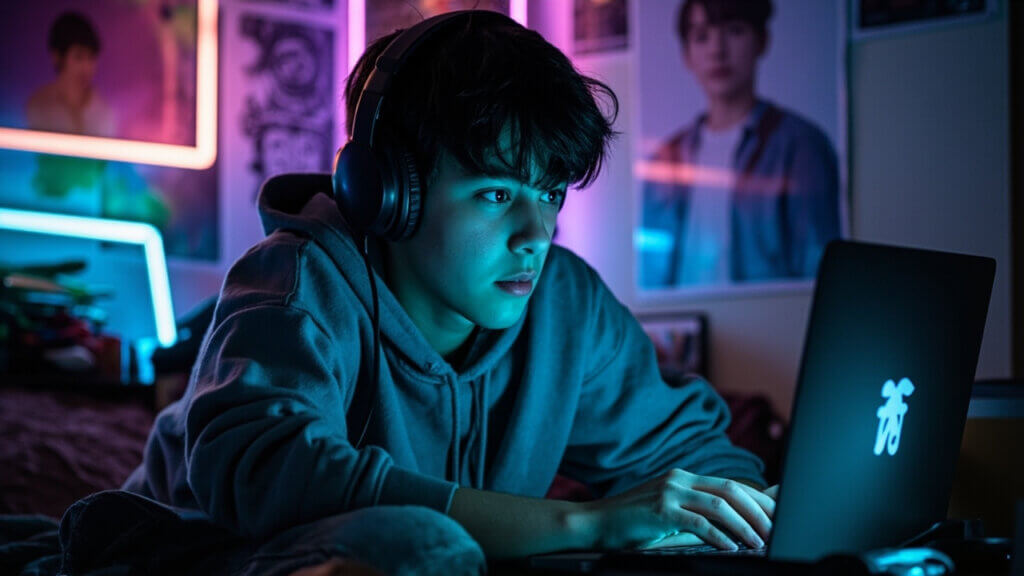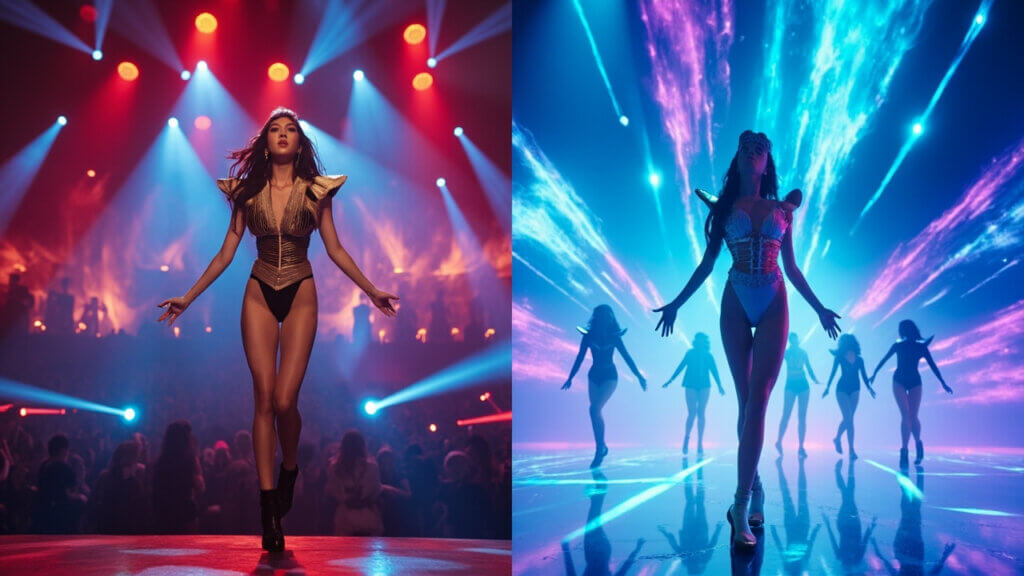Introduction
In the era of AI and digital innovation, it was only a matter of time before K-pop embraced the virtual. From AI-generated vocals to hyper-realistic avatars, virtual K-pop idols are no longer a sci-fi fantasy—they’re here, and they’re gathering fans. But the question is: would you stan one?
This post explores the rise of virtual K-pop idols, their appeal among fans (especially Gen Z), and what this could mean for the future of music, fandom, and identity.

1. What Is a Virtual K-Pop Idol?
A virtual idol is a character—animated or AI-generated—created entirely by technology. They can sing, dance, livestream, and even interact with fans via chat or voice, all without being “real.”
✅ Why People Like Them:
- Perfect visuals and consistent performances
- No scandals, no fatigue, no aging
- Open to global fan interaction 24/7
❌ Why It’s Controversial:
- Lack of emotional authenticity
- Ethical questions about replacing real artists
📌 Real Case: “MAVE:” – Korea’s first hyper-realistic AI girl group
Created by Kakao, MAVE: debuted in 2023 with a full music video, personality profiles, and virtual fan interactions. Fans describe the experience as “futuristic but oddly familiar.”
🔗 Explore MAVE: https://www.kpopmap.com/mave-profile-facts-debut/
2. How Gen Z Fans Are Reacting
Some see virtual idols as the natural evolution of the genre. Others prefer real emotions and imperfections.
📌 Real Case: Tyler, 19 – Los Angeles, CA
Tyler started stanning MAVE: after seeing a TikTok clip. He now makes fan edits and says, “They’re not human, but their songs still make me feel something.”

3. Blurring the Lines Between Real and Virtual
With virtual influencers, AI voice clones, and deepfakes entering entertainment, K-pop is at the forefront of this digital shift. Some believe fans will eventually stan personalities—not people.
📌 Real Case: Sophie, 23 – Chicago, IL
A longtime fan of BLACKPINK, Sophie now follows both human idols and virtual ones. She says it’s like having two parallel K-pop universes—each offering something unique.

Conclusion
Would you stan a virtual idol? For some, it’s a fun experiment. For others, it’s the future of fandom. As tech advances and AI grows more lifelike, the emotional connections we build—whether with real or virtual performers—might not be so different after all.
💡 Maybe it’s not about real or fake—it’s about how it makes you feel.
